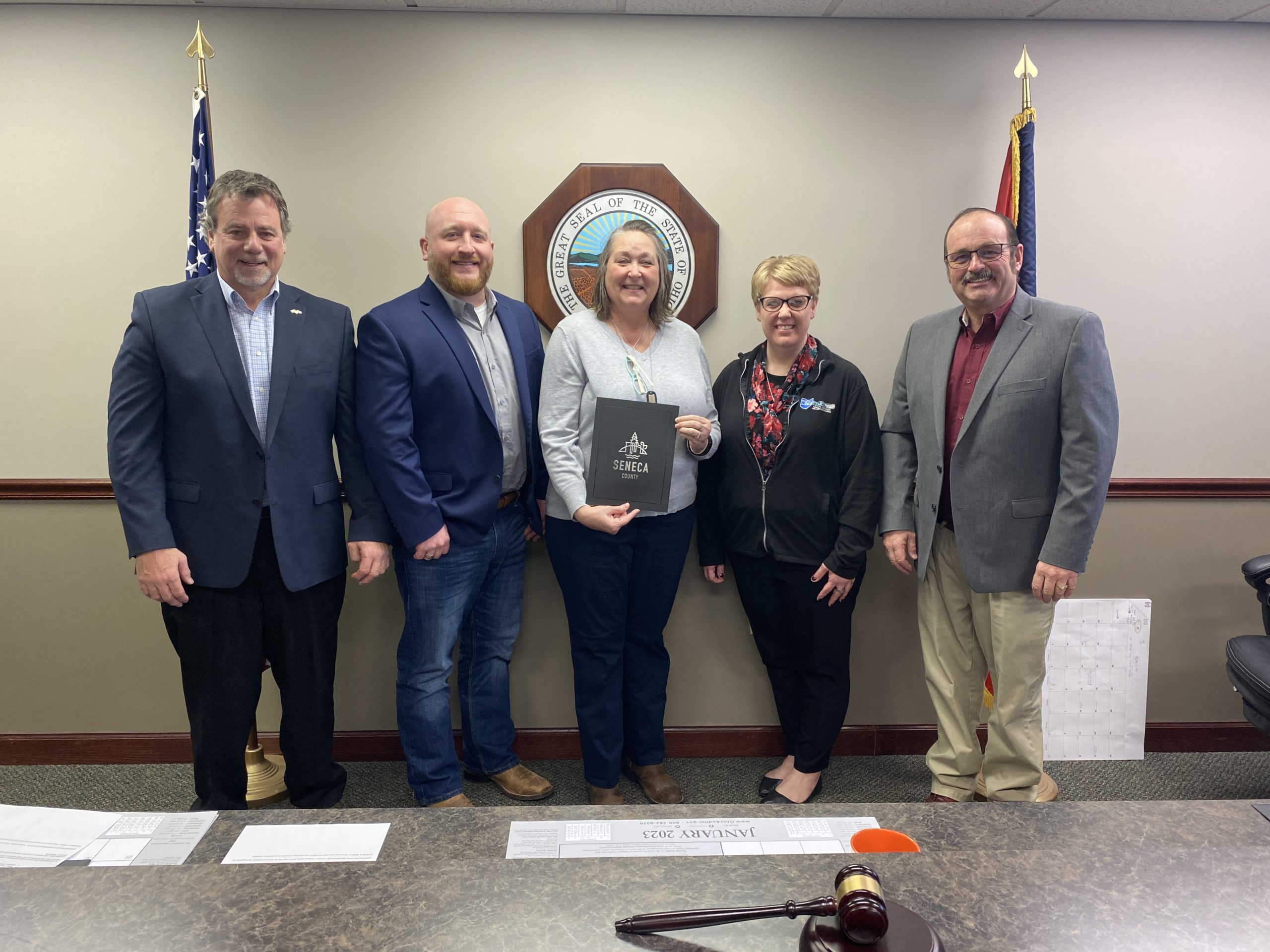Commissioners approve proclamation to celebrate the success of START Program

[Tiffin, OH – Feb. 9, 2023] — The Seneca County Board of Commissioners approved a proclamation Thursday morning celebrating the first graduate of the Seneca County START Program.
Seneca County START Coordinator Jill Gosche and Seneca County Department of Job and Family Services Director Kathy Oliver were in attendance to accept the proclamation. On Wednesday evening, a celebration was held in honor of the first graduate of the program in Seneca County.
START, which stands for Sobriety, Treatment and Reducing Trauma, is a collaborative program between Seneca County DJFS and Seneca County Family and Children First Council and many other community entities.
The voluntary program approaches substance use disorders with compassion, understanding and hope for recovery.
Gosche said she has a great team.
“I will just compliment our team … rockstars, right?” she said. “Our team is incredible, I’m thankful I get to work with them. We’ll continue to grow, we’ll hopefully have a second graduation soon. We’ll continue to support families.”
The proclamation states that the program is “a shining example of collaboration and partnership between Seneca County Job and Family Services, Seneca County Family and Children First Council and a wide range of community partners, who have come together to provide critical support and services to families in need.”
It also states that the program demonstrates a commitment to the principles of family-centered care.
In other business, County Fiscal Officer Barb Patterson gave the General Fund financial report for January. She said revenue was nearly $1.4 million, while expenses were about $1.9 million. She said expenses are a little inflated due to leftover expenses from 2022. She also said revenue does not yet include property tax receipts yet, leading to a lower number.
Also during the session, Mike Dittoe, of High Bridge Consulting, updated the commissioners on efforts in Columbus to classify third-serve emergency medical services as an “essential service” in the state of Ohio.
Dittoe said he recently spoke with State Rep. Gary Click about these efforts.
He said only 11 or 12 states in the country have made third-service EMS an essential service. Legislators are working to devise a way to accomplish this goal and to make sure that there are some substantive improvements to help relieve some of the financial strain on EMS agencies throughout the state.
The guidance provided by commissioners’ office staff and from the Ohio EMS Chiefs Association related to this issue focused on three ways that state legislators could have a positive impact on third-service EMS agencies:
-> Classifying third-service EMS agencies as “essential,” consequently making these entities eligible for state and federal funding that previously may have only been available to fire or police departments.
-> Working to increase the payout/reimbursement rate of Medicare and Medicaid for EMS transports. According to OEMSCA, 12 states already have a supplemental Medicaid payment program.
-> Clarifying that third-service EMS departments are not attached to or affiliated with fire departments. About 50 percent of EMS assistance in the state is provided by third-service EMS organizations.
In other action, the commissioners rescheduled their meeting next week to Tuesday, Feb. 14 at 10 a.m. due to a scheduling conflict.
During new business, the board approved all resolutions and appropriations from the meeting agenda.
